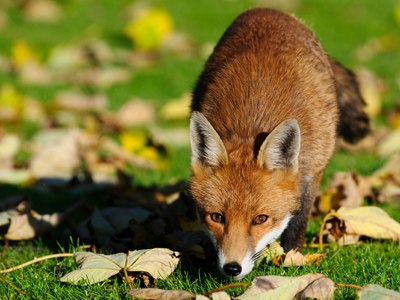
Ask the AI Tutor
Need help with Words (Class Recognition) 01? Ask our AI Tutor!
AI Tutor - Lucy
Connecting with Tutor...
Please wait while we establish connection

See how much you know about the fox in this quiz!
Words (Class Recognition) 01
Learn to spot word classes quickly. Knowing nouns, verbs, adjectives, adverbs, and interjections helps you choose precise words and write clearly in KS3 English.
1 .
Name the capitalized word in the following.
The BROWN fox ran quickly through the woods.
The BROWN fox ran quickly through the woods.
Adjective
Adverb
Noun
Verb
Remember that adjectives "add" to the noun
2 .
Name the capitalized word in the following.
The grey skies CLEARED and the sun shone brightly.
The grey skies CLEARED and the sun shone brightly.
Adjective
Adverb
Noun
Verb
"Cleared" is an action word, therefore a verb
3 .
Name the capitalized word in the following.
The brown fox ran QUICKLY through the woods.
The brown fox ran QUICKLY through the woods.
Adjective
Adverb
Noun
Verb
Remember that adverbs "add" to the verb
4 .
Name the capitalized word in the following.
The brown fox ran quickly through the WOODS.
The brown fox ran quickly through the WOODS.
Adjective
Adverb
Noun
Verb
Nouns are names, places or things
5 .
Name the capitalized word in the following.
The grey skies cleared and the SUN shone brightly.
The grey skies cleared and the SUN shone brightly.
Adjective
Adverb
Noun
Verb
You can put "the" or "a" in front of a noun
6 .
Name the capitalized word in the following.
The special steam train puffed along the tracks SLOWLY.
The special steam train puffed along the tracks SLOWLY.
Adjective
Adverb
Noun
Verb
"Slowly" describes HOW the train "puffed" and is therefore an adverb
7 .
Name the capitalized word in the following.
The GREY skies cleared and the sun shone brightly.
The GREY skies cleared and the sun shone brightly.
Adjective
Adverb
Noun
Verb
"Grey" describes "skies" further so is an adjective
8 .
Name the capitalized word in the following.
The grey skies cleared and the sun shone BRIGHTLY.
The grey skies cleared and the sun shone BRIGHTLY.
Adjective
Adverb
Noun
Verb
"Brightly" tells us how the sun "shone", so is an adverb
9 .
Name the capitalized word in the following.
The brown fox RAN quickly through the woods.
The brown fox RAN quickly through the woods.
Adjective
Adverb
Noun
Verb
Verbs are "doing" or "action" words
10 .
Name the capitalized word in the following.
The special steam train PUFFED along the tracks slowly.
The special steam train PUFFED along the tracks slowly.
Adjective
Adverb
Noun
Verb
"Puffed" is an action word, therefore a verb
**Unlimited Quizzes Await You! 🚀**
Hey there, quiz champ! 🌟 You've already tackled today's free questions.
Ready for more?
Ready for more?
🔓 Unlock UNLIMITED Quizzes and challenge yourself every day. But that's
not all...
not all...
🔥 As a Subscriber you can join our thrilling "Daily Streak" against other
quizzers. Try to win a coveted spot on our Hall of Fame Page.
quizzers. Try to win a coveted spot on our Hall of Fame Page.
Don't miss out! Join us now and keep the fun rolling. 🎉
**Unlimited Quizzes Await You! 🚀**
Hey there, quiz champ! 🌟 You've already tackled today's free questions. Ready for more?
🔓 Unlock UNLIMITED Quizzes and challenge yourself every day. But that's not all...
🔥 As a Subscriber you can join our thrilling "Daily Streak" against other quizzers. Try to win a coveted spot on our Hall of Fame Page.
Don't miss out! Join us now and keep the fun rolling. 🎉






